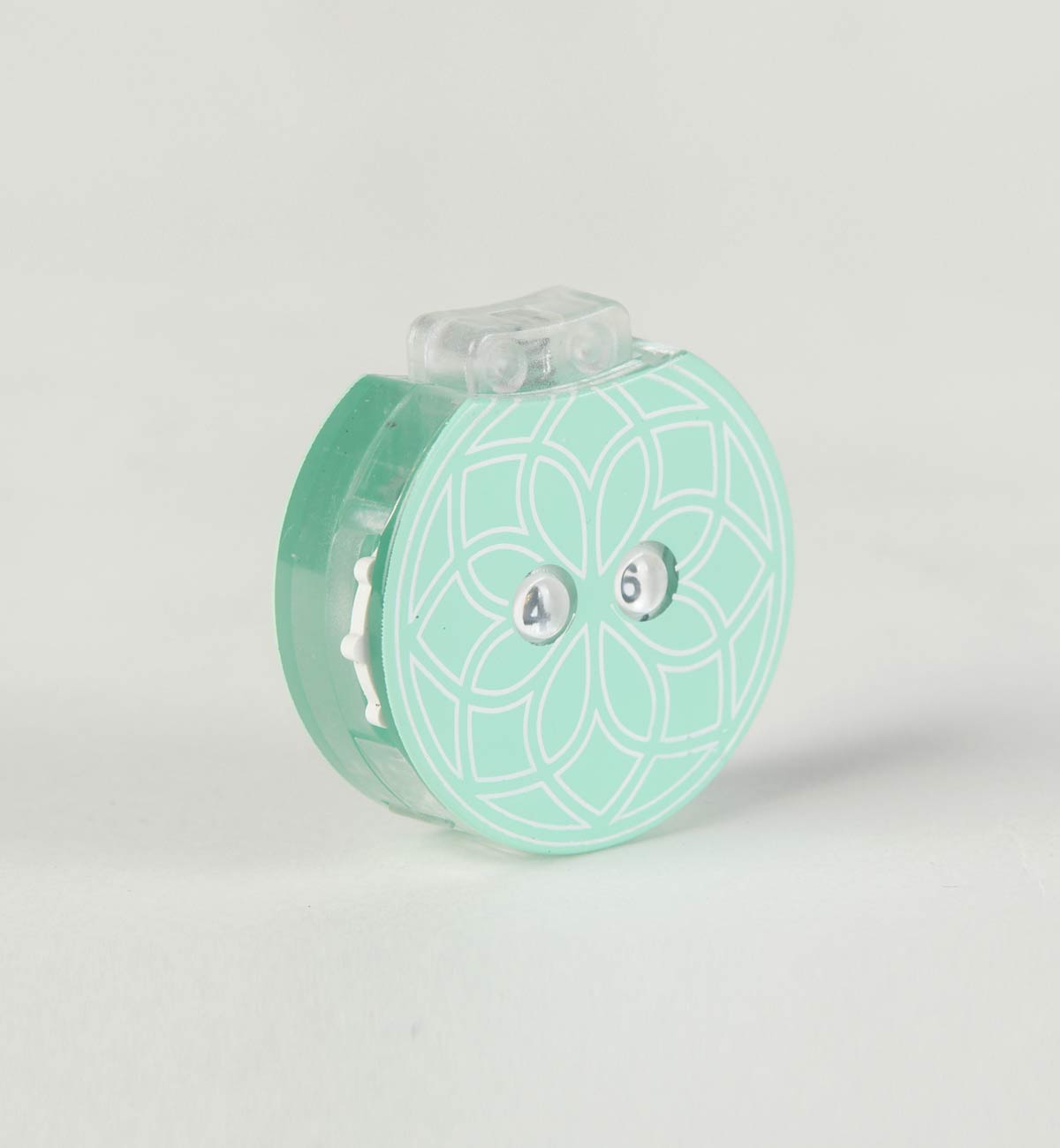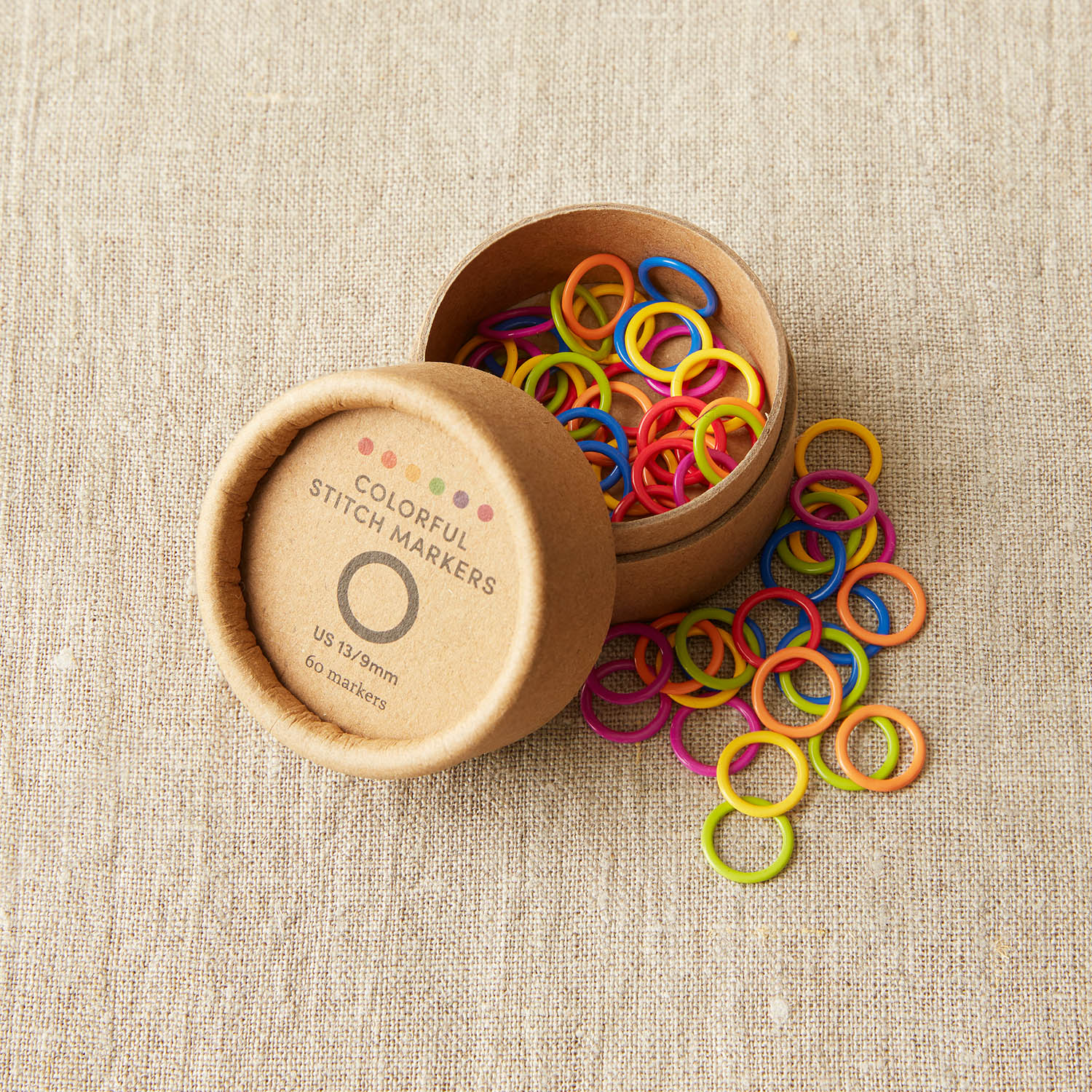The advantages of cotton yarn: natural, sustainable and versatile
Durable, natural and endlessly versatile, a good cotton yarn is the perfect material for a variety of craft projects. From bright crochet blankets to soft knitted sweaters, cotton yarn offers numerous advantages that make it a popular material for all kinds of crafts.
One of the main advantages of using cotton yarn for crocheting and knitting is its naturalness and the fact that cotton yarn is cheap. Unlike synthetic fibers, cotton is a renewable product and helps reduce the ecological footprint. In addition, cotton yarn is hypoallergenic and therefore ideal for people with sensitive skin.
Another great advantage of cotton yarns is their versatility. They are easy to crochet or knit and are suitable for a wide variety of projects, from clothing to accessories. In addition, depending on the manufacturer, cotton yarn is available in a huge range of colors, so you can let your creativity run wild.
Although cotton yarns may not be as stretchy as other yarns, they still offer good durability and longevity. The finished projects hold their shape and can even be passed down through generations.
Overall, cotton yarn offers a natural, sustainable solution for handcraft projects. Immerse yourself in the world of cotton yarn and let your creativity run wild.
What is cotton yarn?
Cotton is obtained from the fibers of the cotton plant. It is a natural material characterized by its softness and breathability. Cotton yarn can be made from either combed or combed and mercerized fibers. Combed cotton yarn is softer and has a more uniform texture, while mercerized cotton yarn has a silky sheen, better color absorption, and is smoother to the touch.
Why is cotton yarn a sustainable choice?
Cotton yarn is a sustainable choice for craft projects for several reasons. First, cotton is a renewable resource because it is derived from the cotton plant. Unlike synthetic fibers, which are made from non-renewable raw materials, cotton helps reduce your carbon footprint.
Secondly, cotton yarn is biodegradable. When a cotton project is no longer needed or damaged, it can be disposed of without negative impact on the environment. In contrast, synthetic fibers remain in the environment for centuries and contribute to littering.
Finally, cotton yarn is hypoallergenic, which means it does not cause allergic reactions on the skin. This makes it ideal for people with sensitive skin or allergies to synthetic fibers.
Advantages of cotton yarn over synthetic yarns
There are many advantages of cotton yarn over synthetic yarn. First, cotton yarn is more natural and skin-friendly. Unlike synthetic yarns that are made from chemical compounds, cotton yarn is free from harmful chemicals that can cause skin irritation.
In addition, cotton yarn is breathable and absorbs moisture, which means it is comfortable to wear and, more importantly, to work with even in warm weather. In contrast, synthetic yarns can trap moisture and cause overheating.
Another advantage of cotton yarns is their durability. Finished projects hold their shape well and can even be passed down through generations. In contrast, synthetic yarns can lose their shape or wear out over time.
What makes a good cotton yarn?
A good cotton yarn is characterized by the following properties:
1 Softness : A cotton yarn should be soft and comfortable on the skin.
2 Breathability : Cotton is naturally breathable, which means it can absorb and release moisture.
3 Durability : Cotton is a durable fiber that should retain its shape even after many washes. A good cotton yarn should therefore be durable and not fray quickly or look worn.
4 Uniform Thickness : A cotton yarn should have a uniform thickness so that it gives a uniform texture and appearance when knitted.
5 Color Selection : A good cotton yarn should be available in a variety of colors so that it can be used for different knitting projects and color combinations.
6 Sustainability : It is important that a good cotton yarn comes from sustainable production and meets ethical standards. A certification such as GOTS (Global Organic Textile Standard) can be an indicator here.
Different types of cotton yarn and their uses
Cotton yarn is available in different thicknesses and textures to suit the needs of different craft projects. Here are some of the most common types of cotton yarn and their uses:
1 Combed Cotton Yarn : Combed cotton yarn is soft and uniform in texture. It is good for garments such as sweaters, T-shirts and baby clothes.
2 Combed and mercerized cotton yarn : Combed and mercerized cotton yarn has a silky sheen and better color absorption. It is good for projects where a smooth finish is desired, such as blankets and tablecloths.
3 Recycled Cotton Yarn : Recycled cotton yarn is made from reused cotton fibers. It is an eco-friendly choice and works well for projects where sustainability is a priority.
cotton yarn for crochet and knitting projects
Cotton yarn is suitable for both crochet and knitting projects. Due to its natural strength and durability, cotton yarn is easy to work with and suitable for a variety of patterns and designs.
When crocheting, cotton yarn is ideal for projects such as blankets, pillowcases, potholders and amigurumi. The structure of cotton yarn allows you to create detailed patterns and textures.
When knitting, cotton yarn is good for garments such as sweaters, t-shirts, scarves and also socks. It is soft and comfortable to wear, and its breathability makes it suitable for warm weather too.
Tips for the care and storage of cotton yarn
To ensure your cotton yarn stays in top condition, it is important to care for and store it properly. Here are some tips for caring for and storing cotton yarn:
1 Follow washing instructions : Check the washing instructions on the cotton yarn label (or band) and follow the instructions carefully. Some cotton yarns can be machine washed, while others require hand washing.
2 Air drying : To prevent the cotton yarn from shrinking or deforming, it is best to dry it flat on a clean surface. Avoid using a tumble dryer at all costs.
3 Store in a dry place : Store your cotton yarn in a dry place to avoid moisture damage. An airtight storage box or resealable bag can help keep out dust and dirt.
Where can I buy high-quality cotton yarn?
You will find a variety of high-quality cotton yarns in our online shop. The following qualities are particularly popular:
1 Sandnes yarn : At Sandnes, the Mandarin Petit made of pure cotton is particularly popular, as are the mixed yarns Tynn Line (or the thicker Line) and Duo with a cotton content of approx. 50%.
2 Pascuali : Pascuali Suave is a soft yarn made from 100% organic cotton. Its soft texture makes it so special.
3 Soul Wool : V egan Cashmere from Soul Wool is almost as soft as cashmere and is spun into a tube.
Conclusion: Why cotton yarn is a versatile and environmentally friendly choice
In summary, cotton yarn offers a natural, sustainable and versatile solution for craft projects. It is a great choice for people with sensitive skin as it is hypoallergenic. Cotton yarn is also durable and holds its shape well, making it an investment for the future.
Cotton yarn also offers many design possibilities as it comes in a wide range of colors and lends itself well to various knitting and crochet techniques. It is also an environmentally friendly choice as cotton is a renewable resource and is biodegradable.
Immerse yourself in the world of cotton yarn and let your creativity run wild. Whether you want to make clothes, accessories or home decorations, cotton yarn is an excellent choice that is both environmentally friendly and aesthetically pleasing. Try it and discover the many benefits of cotton yarn!
-
Shipping costs and delivery conditions
Shipping within Germany
We only ship via DHL.
The packaging and shipping costs are a flat rate of €4.90.
Shipping is free for orders over 99 €!One return per order is free - write a message to info@gute-garne.de to receive a return label.
For further returns from Germany for goods from the same order and for returns from a country other than Germany, you will bear the direct return costs.
Shipping to the EU
We only ship via DHL.
The packaging and shipping costs are a flat rate of €9.90.Shipping is free for orders over 149 €!
For returns from a country other than Germany, you will bear the direct return costs.
international delivery times
Austria, Netherlands, Belgium: Delivery in 2-5 days.
All other EU countries: Delivery in 3-8 days.Information on calculating the delivery date
The delivery period begins on the day after the conclusion of the contract and ends with the expiry of the last day of the period.
If the last day of the deadline falls on a Sunday or a public holiday recognised by the state at the place of delivery, the next working day shall take the place of such a day.
- Choosing a selection results in a full page refresh.
- Opens in a new window.




